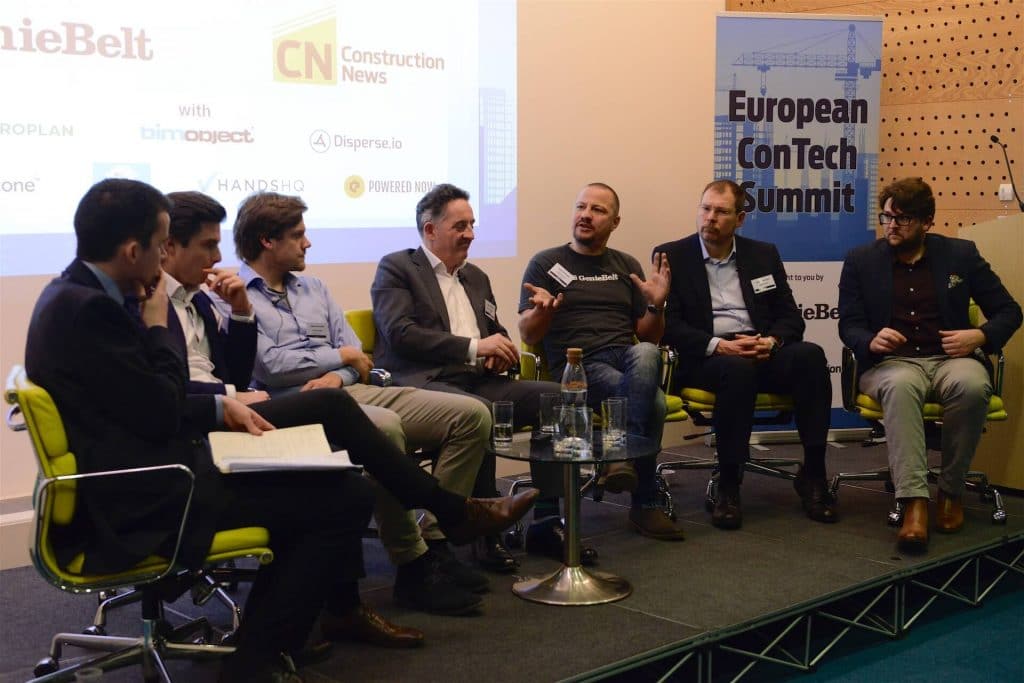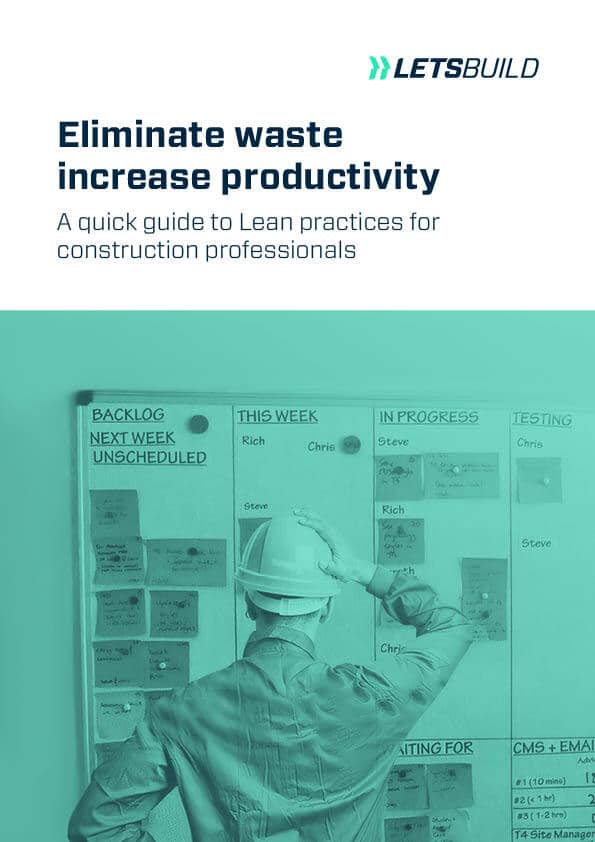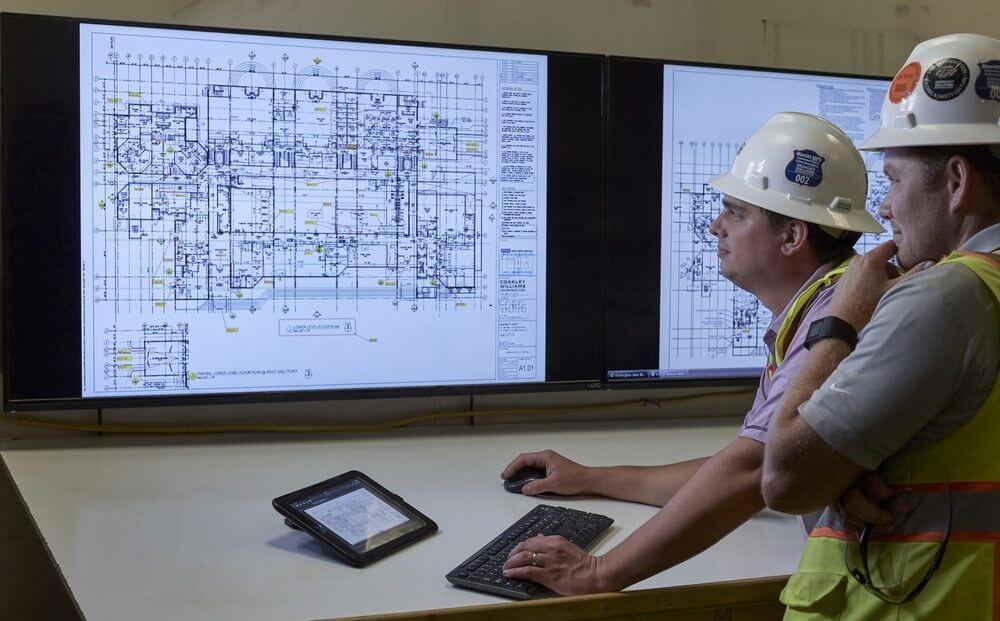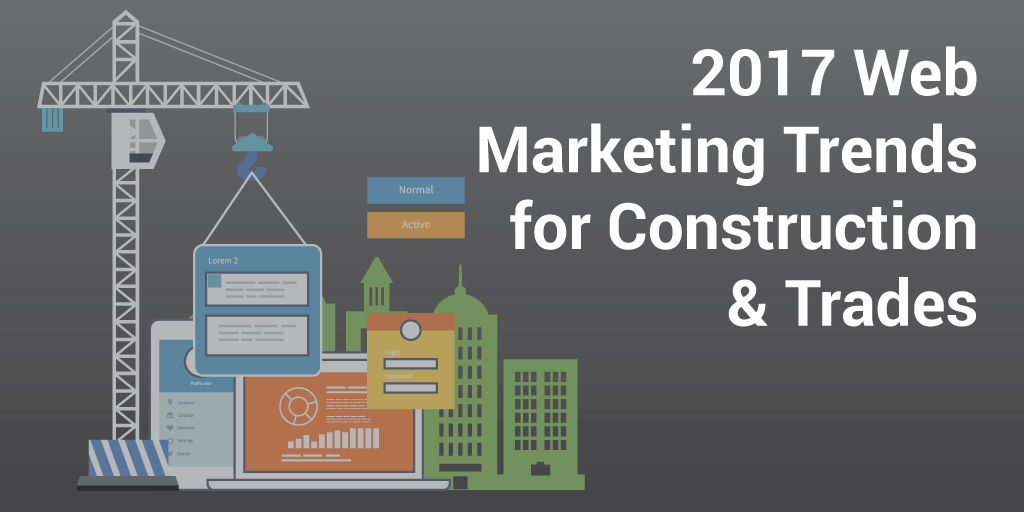Just a few days ago, GenieBelt hosted, in collaboration with Construction News, the European ConTech Summit in London. Some of the most noteworthy and inspiring ConTech companies in Europe took part in the event.
Top construction experts provided their perspective on what is the current state of construction, what the future of the industry brings, and what kind of opportunities are opening up for investors and ConTech companies.
‘We are in an industry that has gone through this transition and paradigm shift and it has done it by increasing the number of investments in technology’, mentions Ulrik Branner, CEO of GenieBelt.
And he continues by adding:
‘If you are an investor out there and you are thinking when do I go into this industry, invest now!’
At the moment, construction holds immense investment potential. Nevertheless, a strong focus on digitisation and new technologies is required in order for the industry to develop and overcome its current challenges.
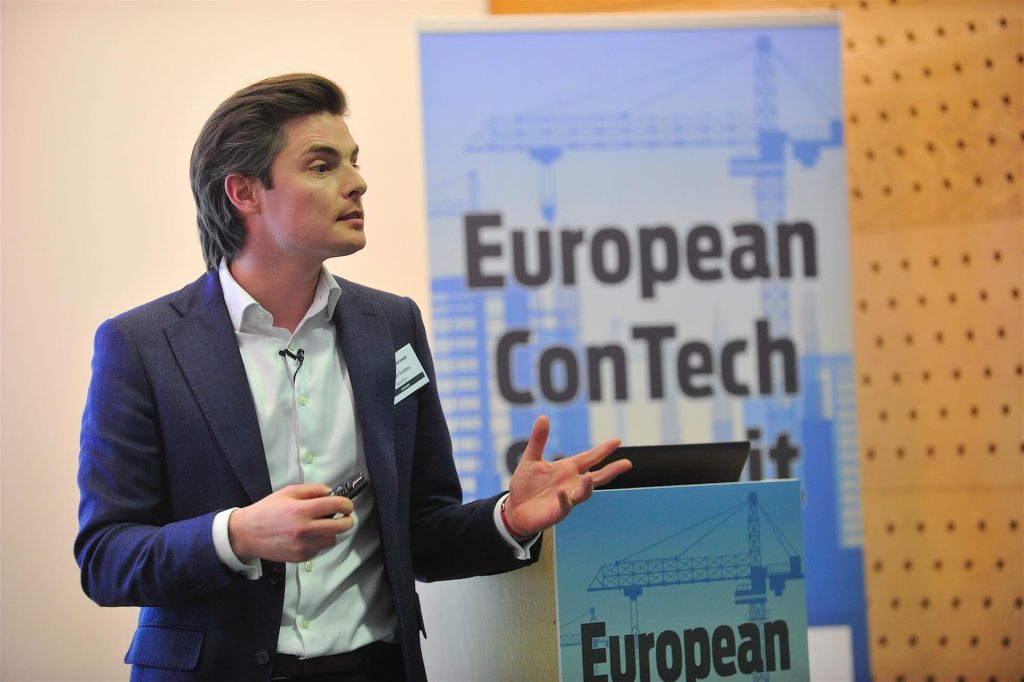
As Thomas Goubau, CEO and Founder of Aproplan underlines:
‘The current state of the construction sector is for many reasons on the verge of going in a different direction than the one that has been going for the last 15 years. We are talking about a sector with a lot of room for startups and some of the forward-looking investors are actually seeing that’.
Watch full video!
Do you want to take a sneak peek on everything that happened on the European ConTech Summit? Then all you have to do is adding your email address to the form below and unlocking the whole event.
[convertful id=”2098″]
Digitisation under the spotlight
One of the hottest topics during the European ConTech Summit was the imminent need for construction to embrace digitisation and invest in the great value that modern tools can bring to the building process.
Matthew Jackson, Global Manager of the Hercules Platform at BIMobject, is highlighting that we are just in the beginning of a tremendous shift and its success is vastly depended on the effort and the resources that the sector is willing to put in this endeavor.
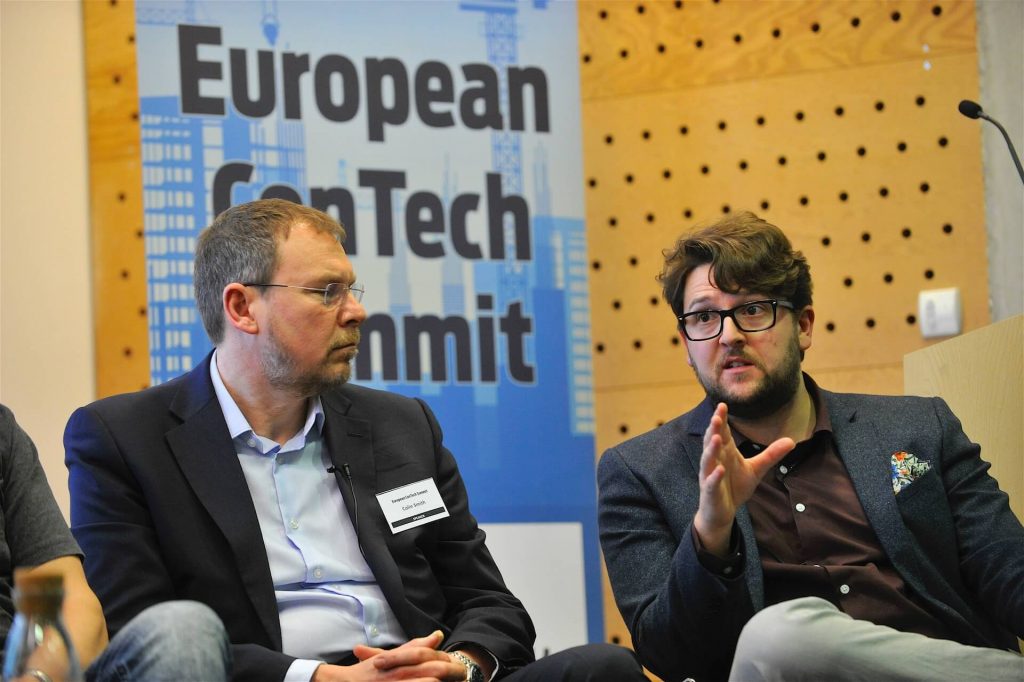
‘It’s important for the industry to invest more in construction technology to really kickstart and make available the tools that the sector needs. The investment opportunity is huge’, said Matthew Jackson.
Furthermore, Jan Mischke, Senior Fellow at McKinsey, agrees with Matthew Jackson that a brave change in the way that the value chain works, it could be extremely beneficial for the construction sector:
‘There are tremendous opportunities towards full digitization of the value chain and the construction sector needs to perform to capture an opportunity of up to $1.6tn a year, by raising its productivity standards to that of other sectors’.
It becomes clear, then, that productivity and digitization are going hand in hand in construction. But this realization didn’t emerge out of nowhere. Budget overruns (80% of projects), decreased efficiency rates (approx. 30%) and poor IT investment (less than 1%) are just a few of the factors that have led construction to a crucial path.
‘There are a lot of consistent messages from clients wanting the industry to change the way it works. And changing the way it works in a way that actually aligns with a really powerful digital agenda’, notices Simon Rawlison, Partner and Head of Strategic Research in Arcadis.
‘The gap in productivity between construction and average economy is $1.6 trillion a year’
During his conference talk at the European ConTech Summit, Jan Mischke presented a shocking statistic that reveals the magnitude of the problem in construction when it comes to efficiency and productivity on and off-site.
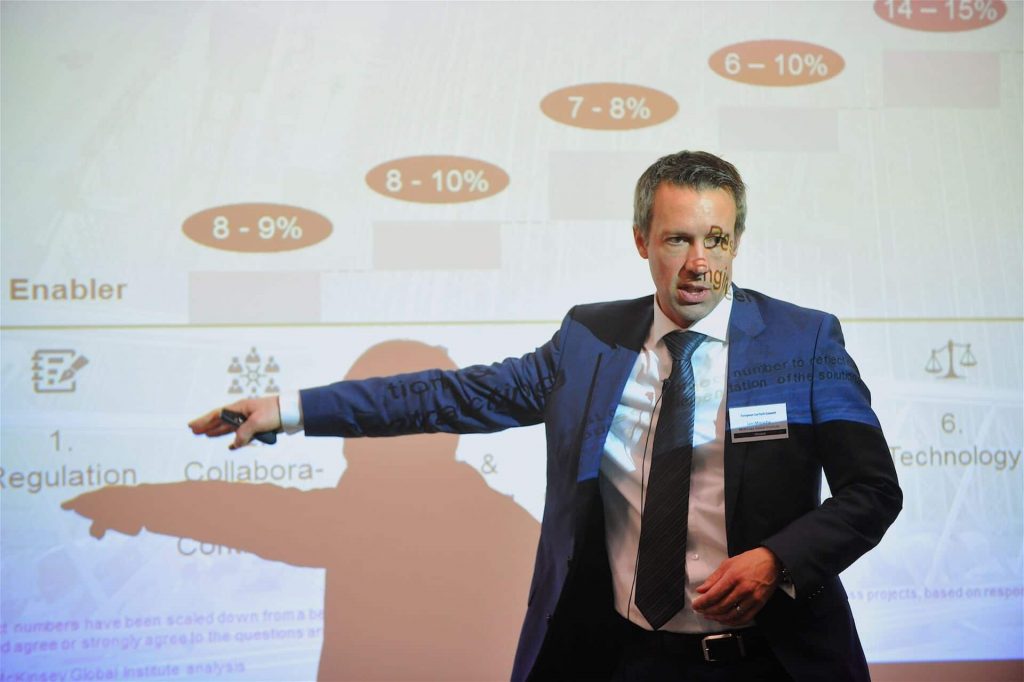
‘The opportunity for the building sector just from moving to economy average is more than $1.6trn a year. That’s half the global annual infrastructure spending. Just by doing things better, not hiring a single additional person we could build half of the world’s infrastructure’, notices Jan Mischke.
There is a number of reasons behind this problematic situation. The most crucial could probably summed up to the following:
The complexity of the projects
Construction projects are becoming more and more perplexed. According to Jan Mischke, this element has played a crucial role in decreasing productivity in the sector, especially when we are talking about big building projects. Same applies to renovation projects where increasing productivity is a big challenge due to the diversity of the tasks.
Read more here: This is the key to unlocking efficiency on-site
Project collaboration
The unhindered collaboration between the numerous members of the value chain in construction is another significant issue. When it comes to construction’s value chain there is a lot room for improvement. The planning phase is, of course, one of the most vital stages of the project process and it could definitely be done better. This would allow for better collaboration and solid project planning.
[clickToTweet tweet=”The use of new technologies could improve project collaboration and empower the connection between the construction site and the office!” quote=”The use of new technologies could improve project collaboration and empower the connection between the construction site and the office!”]
Ulrik Branner acknowledges that the way in which the value chain is currently built can lead to a lot of distrust and project disputes. One of the main reasons behind this problematic situation has to do with the fact that project knowledge and data aren’t available to everybody involved in the process. Contractors should make sure that the value chain works. Only then, we will be able to experience a more open and transparent construction industry.
Digital tools could help tremendously with both issues mentioned above. The use of new technologies could improve project collaboration and empower the connection between the construction site and the office. And that could happen through real-time collaboration and data driven decision-making.
‘The public sector should pave the path for digitisation’
Why digital tools are so important for construction? Ulrik Branner explains that thanks to digital communication people can learn from the mistakes of the past and revolutionize the industry.
But the public sector has a very important mission, according to GenieBelt’s CEO:
‘The State has to come stronger on the field and set some requirements for the use of digital solutions in construction projects. The United Kingdom is a good example towards that direction’.
Such an approach would allow for the accumulation of valuable knowledge from big construction failures of the past. Digital tools can serve this purpose and ensure that valuable pieces of information won’t get lost.
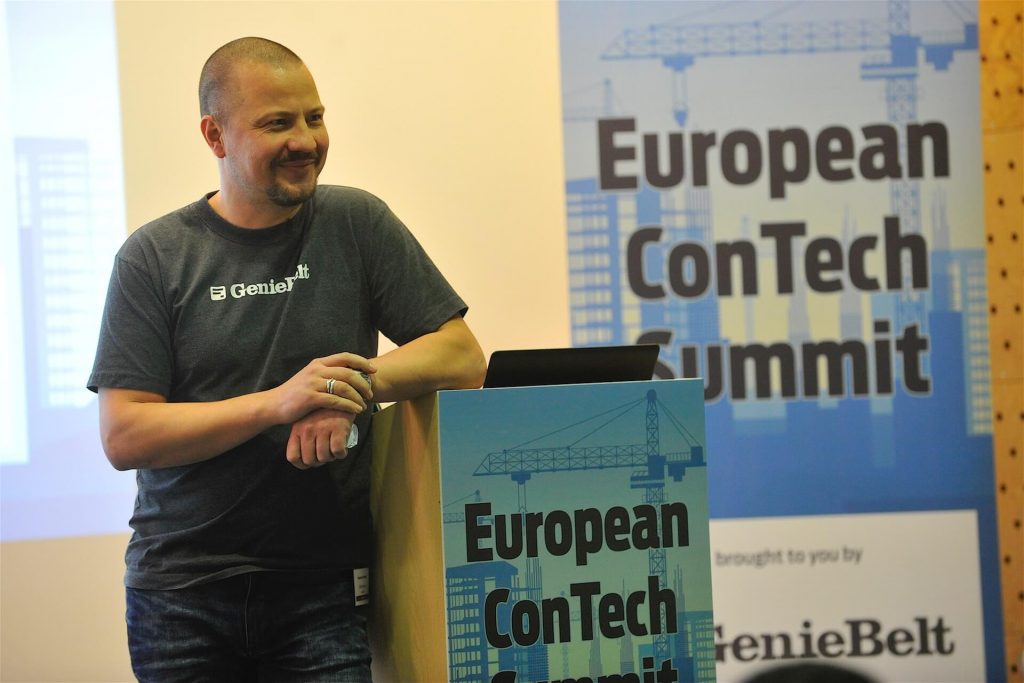
That’s why it would be an excellent idea for the public sector to set specific digital requirements. For instance, if you build for the public, one part of your project communication, models and photos should be handled digitally.
In that manner, it would also be possible to understand better the appetite of the industry, as Simon Rawlison suggests. To put it simply, we would be able to analyze whether we need to focus more on the onsite or offsite aspects of the project.
Invest now!
Despite the challenges that the construction industry is battling against, Ulrik Branner believes that ‘Now it’s the time to invest’! And he is not the only one who supports this view.
‘Construction is in a bad situation but there is a lot of change happening and that change is significantly more promising than what has occurred over the last couple of decades. The building industry is an incredibly exciting one to be in as a startup given the impact that you can have’, says Felix Neufeld, CEO and Founder of Disperse IO.
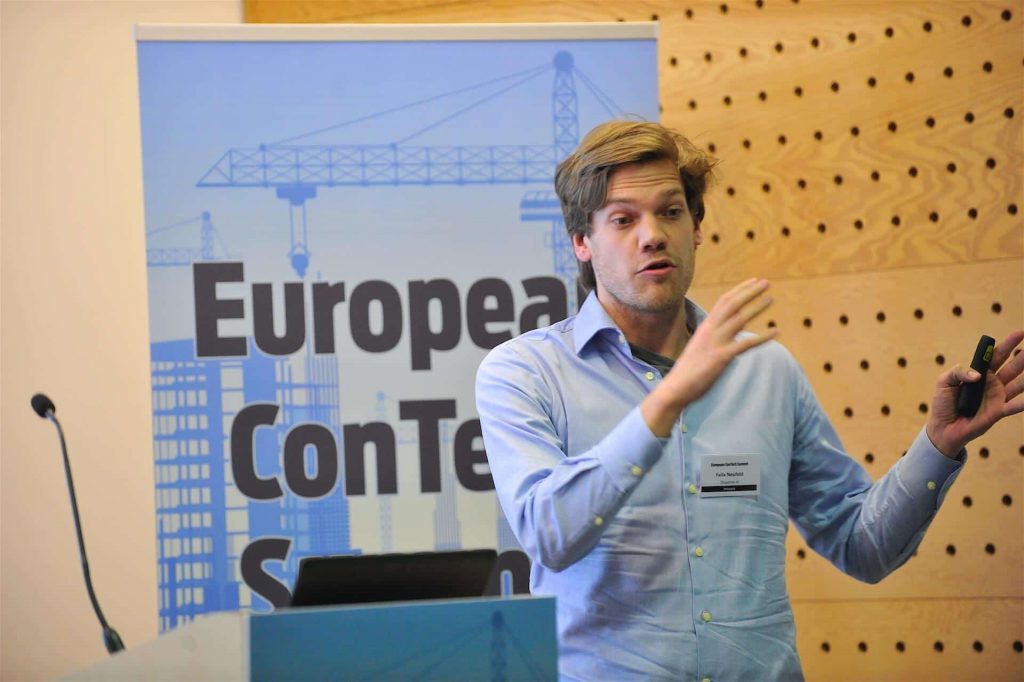
Matthew Jackson from BIMobject also agrees with this view. Especially after his presence on the European ConTech Summit in London, he is convinced that venture capitalists have a great opportunity to make this industry better by supporting some of all these amazing startups and their unique tools.
It becomes clear, then, that now it’s the best time for investors to take a closer look at the industry and find the digital players who will drive construction to a modernised and more productive era.
